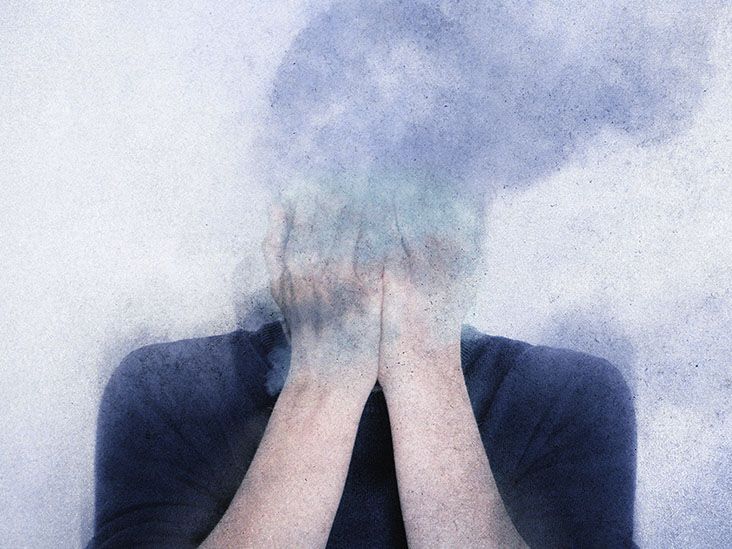Treating schizophrenia can be challenging. A person has treatment-resistant schizophrenia if they try two or more schizophrenia drugs at the right dose and do not see any improvement in symptoms.
A
Treatment-resistant schizophrenia can still improve with different treatments, but these improvements can take time and experimentation.
Read on to learn more about treatment-resistant schizophrenia, including the causes, symptoms, treatment methods, and more.
Treatment-resistant schizophrenia is schizophrenia that
To qualify for the diagnosis, a person must have undergone 12 weeks of schizophrenia treatment, taking
However, an individual who does not take their medication or takes it only occasionally does not have treatment-resistant schizophrenia. Instead, they are not taking the treatment as a doctor has prescribed.
Treatment-resistant schizophrenia is common. However, researchers do not know what causes it or how to predict who will respond to treatment.
Potential explanations for why some individuals develop treatment-resistant schizophrenia include:
- Neuroinflammation: Some researchers believe that
neuroinflammationTrusted Source , which involves inflammation in the brain and nervous system, contributes to the development of schizophrenia. They also think certain types of neuroinflammation make treatment-resistant schizophrenia more likely. - Schizophrenia subtype: Some researchers believe that treatment-resistant schizophrenia is a schizophrenia subtype, with a different disease course. Some researchers believe that this form of the condition occurs because of a dysfunction of the neurotransmitters glutamate and gamma-aminobutyric acid, making dopamine more active in the brain.
- Dopamine sensitivity: Another theory suggests
dopamineTrusted Source is critical. In this understanding, medication that acts on dopamine receptors changes how the brain responds to dopamine, making the medication less effective.
Doctors typically divide schizophrenia into positive and negative symptoms. Positive symptoms involve a person having unusual thoughts or behaviors, including:
- delusions, or false beliefs
- hallucinations, or false sensory experiences
- thought disorders
- disorganized thinking or behavior
Negative symptoms refer to the absence of typical behavior and include symptoms such as:
- low motivation
- depression and difficulty feeling pleasure
- speech issues
People with treatment-resistant schizophrenia
Doctors diagnose schizophrenia according to a person’s symptoms. To qualify for a diagnosis, someone must have at least two of the following symptoms for more than
- hallucinations
- delusions
- disorganized or chaotic speech
- catatonic behavior, which means slow or “frozen” movement, or disorganized behavior
- negative symptoms such as low motivation and the inability to feel pleasure
To diagnose treatment-resistant schizophrenia, a person must have tried at least two antipsychotic schizophrenia medications, at the typical dose, for at least 6 weeks. They must have had little or no improvement in positive symptoms.
This means that it takes at least 12 weeks following a schizophrenia diagnosis to diagnose someone with treatment-resistant schizophrenia.
The first-line treatment option for treatment-resistant schizophrenia is clozapine. Some other treatment options include:
- higher doses of schizophrenia medications
- combining multiple schizophrenia medications
- brain stimulation therapies such as:
- psychotherapy
A person may also need various forms of social support, such as family therapy, the services of a social worker to connect to resources, and accommodations at work or school.
However, schizophrenia medications often cause significant side effects. For this reason, a person may need support to manage these side effects or occasionally change their treatment.
Schizophrenia causes a person to believe things that are not true or sense things that are not there. Consequently, it may be difficult for them to realize they have the condition or that it does not respond to treatment.
Aside from the typical schizophrenia symptoms, such as delusions and hallucinations, some signs that treatment may not be working include the following:
- A person feels anxious or upset about things others do not believe or see.
- Friends or loved ones continue to express concern about a person’s emotions or behavior.
- A person feels that their life has not improved with medication.
- An individual feels like they think or live very differently from others.
Additionally, a person may benefit from extra support if:
- the side effects of medications are intense or feel intolerable
- they have difficulties remembering to take their medication
- they feel that treatment has stopped working
Managing treatment-resistant schizophrenia can be difficult, and a person may continue to experience issues with treatment. A 2021 study of 63 people with treatment-resistant schizophrenia found that 25% responded to clozapine, the first-line treatment.
Certain factors correlated with a higher likelihood of treatment response, including:
- better social functioning in childhood and adolescence before diagnosis
- having the paranoid subtype of schizophrenia
- not waiting longer than 7 years to try clozapine
- trying at least one atypical antipsychotic schizophrenia drug
Additionally, demographic and biological factors did not predict treatment response.
Treatment-resistant schizophrenia can cause challenges, especially when the condition disrupts a person’s life and relationships.
However, resistance to treatment does not mean that schizophrenia is totally untreatable. With the right treatment provider and drug dosage, a person may experience significant relief.
Other interventions can also help. Psychotherapy can help a person better manage schizophrenia symptoms and learn to advocate for themselves and live with their diagnosis. Brain stimulation therapies, such as electroconvulsive therapy, may help “reset” the brain, easing schizophrenia symptoms over the long term.
People with the condition also need to work with a knowledgeable treatment team, which includes a psychiatrist.



